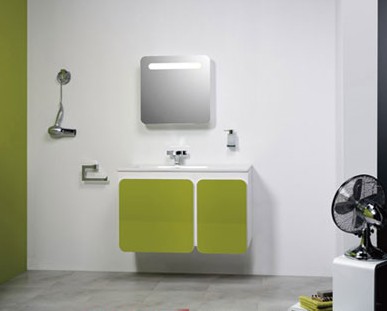New regulations for building waterproofing industry introduced
 At the end of 2013, another new regulation of the building waterproofing industry, "Technical Specification for Residential Indoor Waterproofing" (JGJ298-2013) (hereinafter referred to as "the Regulation") began to play a guiding role. It is reported that the "Regulations" apply to the design, construction and quality acceptance of indoor waterproofing projects such as bathrooms, kitchens, bathrooms, enclosed balconies with water distribution points, and independent water containers (such as small pools) in new houses.
At the end of 2013, another new regulation of the building waterproofing industry, "Technical Specification for Residential Indoor Waterproofing" (JGJ298-2013) (hereinafter referred to as "the Regulation") began to play a guiding role. It is reported that the "Regulations" apply to the design, construction and quality acceptance of indoor waterproofing projects such as bathrooms, kitchens, bathrooms, enclosed balconies with water distribution points, and independent water containers (such as small pools) in new houses. “As a private property, there are a lot of lawsuits caused by leakage problems upstairs and downstairs. We hope to guide the design, selection, and construction of residential interior waterproofing projects based on the quality of waterproof projects and property safety.†The main drafters of the "Procedure", China Zhang Ping, senior engineer of the Architectural Design Institute, explained the original intention of the "Regulations".
Different from roof waterproofing and underground waterproofing, residential indoor waterproofing is a special project. The indoor waterproofing construction area is relatively small, there are many pipelines and various types of equipment, and the joints such as floor drains, wall-penetrating pipes, and internal wall corners are leaky places. Many years of practice have proved that the choice of waterproof material at these node locations is critical. The "Regulations" specifically require that "residential indoor waterproofing works should be based on the different fortification sites, according to the order of flexible waterproof coating, waterproofing membrane, and rigid waterproofing material, and appropriate waterproofing materials should be selected."
"Waterproof coating has advantages of continuous film formation and is more applicable. It is the waterproof material devised by the protocol." However, Zhang Ping further pointed out that solvent-based waterproof coatings should not be used. Organic solvents are dispersion media and can be evaporated. For example, solvent rubber asphalt waterproof coating, tar type polyurethane. “In order to reduce costs, some companies may even add crude benzene when adding organic solvents. Indoor use of such coatings may cause poisoning to construction workers in poor ventilation conditions and relatively low layer heights in pipelines. â€
Zhang Ping also introduced that the industry's best overall performance is polyurethane waterproof coating, which is used in the first-tier cities. In a broad sense, it also belongs to solvent-based coatings, but its film forming mechanism is reaction curing, and indoor waterproofing works “usefulâ€.
It is also understood that there are four mandatory provisions in the "Regulations" that must be implemented. For example, solvent-based waterproof coatings may not be used for indoor waterproofing, and the waterproof layer may not leak. At the same time, the floor and floor of the bathroom and bathroom shall be provided with a waterproof layer, and the walls and ceiling shall have a moisture-proof layer. There shall be measures to prevent the overflow of water from the entrance. Drainage risers should not pass through the dwellings of the lower occupants; the same is true for floor drains in the kitchen if there are floor drains.
"If the waterproofing project is done in full accordance with the "Regulations", indoor leakage, etc., can be avoided by considering the design, construction, material selection, and protection systems." As the chief examiner of the "Procedures", the expert committee of the Technical Committee of the China Architectural Society for Waterproofing The chairman, Ye Linbiao, is more worried about the implementation of the "Procedure".
Pneumatic Brad Nailer is used for furniture manufacture.
Most of our products have got the CE certificate.
The No.1 rule when buying peneumatic tools is not to skimp on cheap tools. Well built tools are safer and easier to use, and they will last longer than cheap tools. Not only low maintenance in progress, but also improve your productivity. In the long run, quality tools will save you money.

F Brad Nailers,Cordless Brad Nailer,18 Gauge Brad Nailer,Pneumatic Finish Nailer
DAHOO Tools Co., Ltd. , http://www.dahootools.com